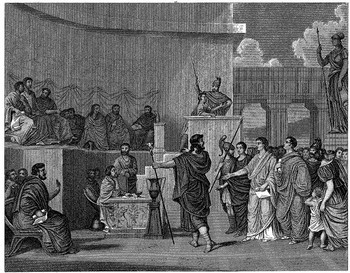It occurred to me that the political process I have been watching reminded me of Acts 17 and Paul’s preaching in the Areopagus at Athens. The philosophers asked him to speak at that venue because he was talking about “strange divinities”.
I wrote a sermon series on Christ’s Mission from the Cross. I borrowed the themes from Detlev Schulz great book, “Mission from the Cross”, published by CPH. There are many facets of that mission.
Christ came to assert God’s love, to reconcile all things to God, to end the struggle between two dominions, to break the power of the devil, and Christ’s mission is the forgiveness of sins – we have to tell that message over and over again. In todays world “social and political ideas are elevated to the status of strange divinities . . . born of the ancient religious hunger to perceive more in the world than just the give and take of ordinary human beings, but adapted to an age that piously congratulates itself on its escape from many of the strictures of ancient religion.” For these folks “the social forces of bigotry, power, corruption, mass opinion, militarism, and oppression are the constant themes of history” against which they must array themselves: These horrors have a palpable, metaphysical presence in the world. Folks today believe the best way to know themselves as moral is to define themselves in opposition to such bigotry and oppression— understanding good and evil not primarily in terms of personal behavior (or original sin) but as states of mind about the social condition.[1] Sin, in other words, appears as a social fact, and the redeemed personality becomes confident of its own salvation by being aware of that fact, by knowing about, and rejecting, the evil that darkens society. Sadly what is considered a part of that evil is claiming that Jesus is forgiveness of sins and that is why he died.
[1] Joseph Bottom, “An Anxious Age”, Colorado Springs, Image, 2014


